Androgenetic alopecia, also known as male or female pattern baldness, is a common type of hair loss that affects millions of people worldwide. While it is more commonly associated with men, women can also experience androgenetic alopecia. In this article, we will discuss the causes, treatments, and home remedies for androgenetic alopecia.
Understanding Androgenetic Alopecia
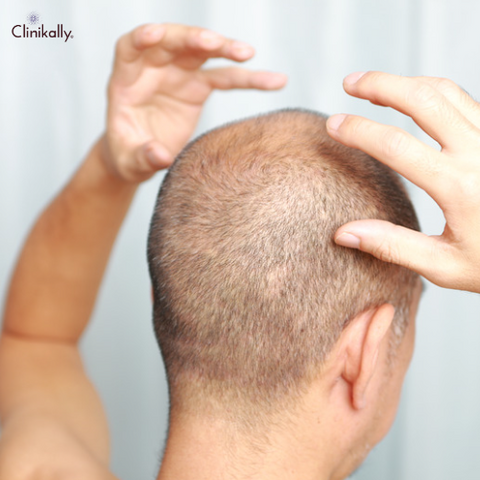
Androgenetic alopecia is a genetic and hormonal condition that affects hair follicles, leading to hair loss. Hair follicles become sensitive to dihydrotestosterone (DHT), a hormone that causes the hair follicles to shrink and weaken. This eventually leads to hair loss. Androgenetic alopecia is commonly divided into two types: male and female pattern hair loss.
Male Androgenetic Alopecia (Male Pattern Hair Loss)
Male pattern hair loss is a common condition that affects more than 50% of men over the age of 50. It typically begins with a receding hairline and thinning on the crown of the head. Over time, hair loss can progress, leading to partial or complete baldness. Male pattern hair loss is primarily caused by genetic factors and hormones.
Female Androgenetic Alopecia (Female Pattern Baldness)
Female pattern baldness is a type of androgenetic alopecia that affects women. It is less common than male pattern hair loss and typically occurs after menopause. Female pattern baldness causes a diffuse thinning of hair on the crown of the head, which can eventually lead to baldness.
Causes of Androgenetic Alopecia
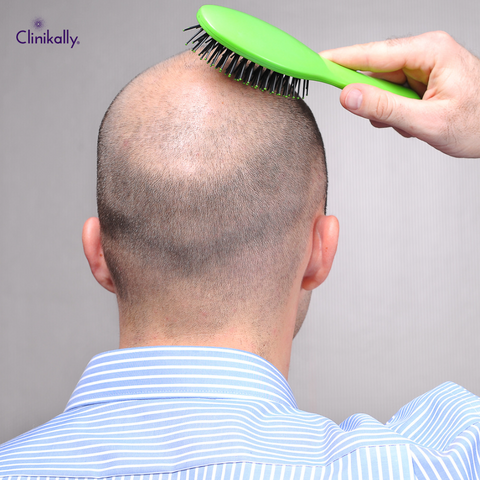
Several factors contribute to the development of androgenetic alopecia, including:
-
Genetics: A family history of androgenetic alopecia can increase the likelihood of developing the condition.
-
Hormones: Androgenetic alopecia is caused by the sensitivity of hair follicles to DHT, a hormone that is produced in the body. Hormonal changes, such as those that occur during puberty, pregnancy, and menopause, can trigger or exacerbate hair loss.
-
Age: As people age, their hair follicles become more sensitive to DHT, leading to hair loss.
-
Medical conditions: Certain medical conditions, such as thyroid disorders and autoimmune diseases, can contribute to hair loss.
-
Medications: Some medications, such as chemotherapy drugs and blood thinners, can cause hair loss as a side effect.
Treatments for Androgenetic Alopecia
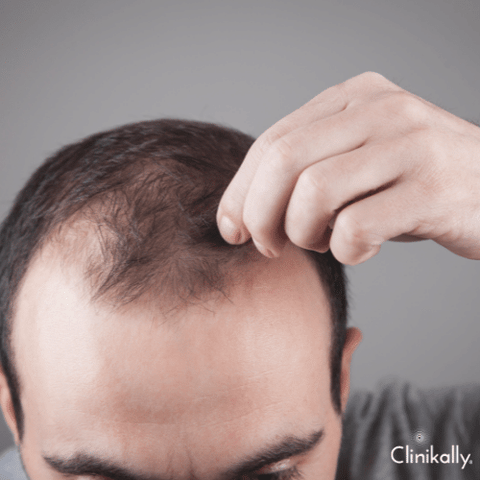
Several treatments are available for androgenetic alopecia, ranging from medications to surgery. The most common treatments include:
-
Minoxidil: This medication is applied topically to the scalp and can help stimulate hair growth and prevent further hair loss.
-
Finasteride: This medication is taken orally and works by blocking the production of DHT, which can slow down or stop hair loss.
-
Hair transplant surgery: This involves taking hair follicles from one part of the scalp and transplanting them into areas where hair is thinning or balding. This procedure can be expensive and may require multiple sessions.
-
Low-level laser therapy: This treatment involves using low-level lasers to stimulate hair growth. It is non-invasive and painless, but it can take several months to see results.
Home Remedies for Androgenetic Alopecia
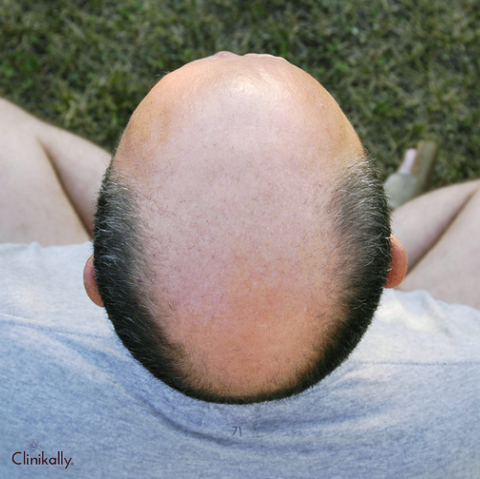
In addition to medical treatments, several home remedies may help promote hair growth and reduce hair loss, such as:
-
Massaging the scalp: Massaging the scalp can help improve blood flow to the hair follicles, which can promote hair growth. Use your fingertips to massage the scalp in a circular motion for a few minutes each day.
-
Aloe vera: Aloe vera has anti-inflammatory properties that can help soothe the scalp and reduce inflammation. Apply fresh aloe vera gel directly to the scalp and leave it on for 30 minutes before rinsing it off.
-
Essential oils: Essential oils, such as lavender and rosemary oil, have been shown to promote hair growth. Mix a few drops of your favorite essential oil with a carrier oil, such as coconut oil, and apply it to the scalp.
-
Healthy diet: Eating a balanced and nutritious diet can help promote healthy hair growth. Foods that are high in protein, iron, and vitamin E are especially beneficial for hair health.
-
Stress reduction: Stress can contribute to hair loss, so finding ways to reduce stress can help promote hair growth. Try practicing relaxation techniques, such as meditation or yoga.
Conclusion
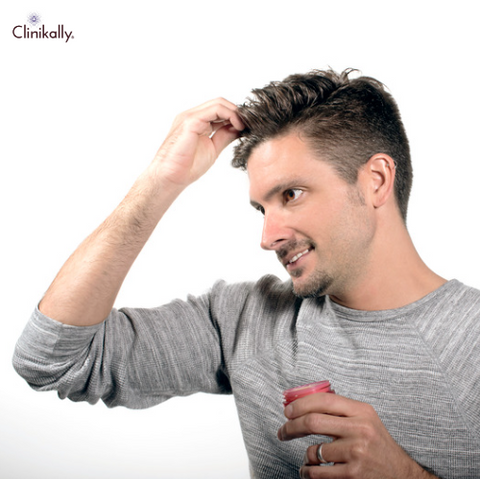
Androgenetic alopecia is a common condition that affects both men and women. While there is no cure for this condition, several treatments are available that can help slow down or stop hair loss and promote hair growth. In addition to medical treatments, several home remedies may help promote healthy hair growth. If you are experiencing hair loss, it is important to speak with your healthcare provider to determine the underlying cause and to develop an appropriate treatment plan. With the right treatment and care, you can achieve healthy hair growth and regain your confidence.
















